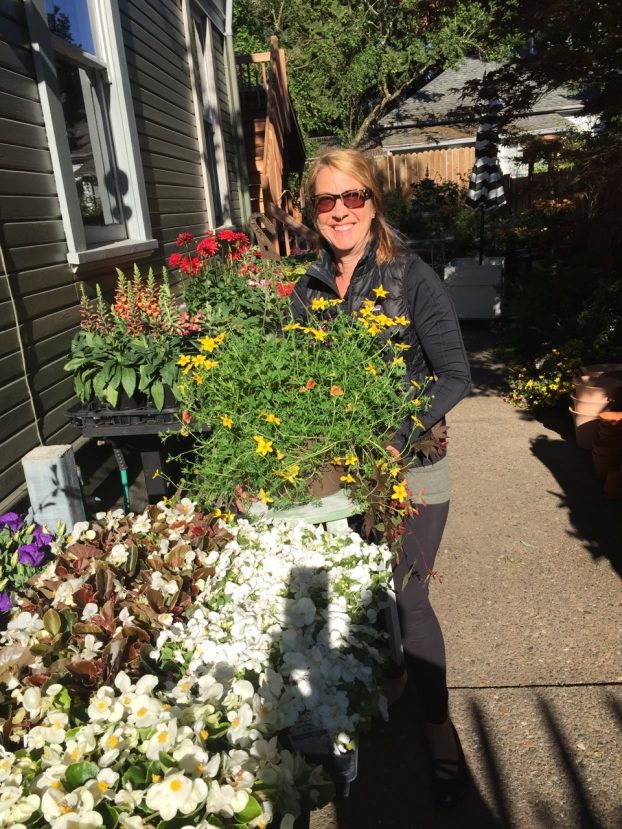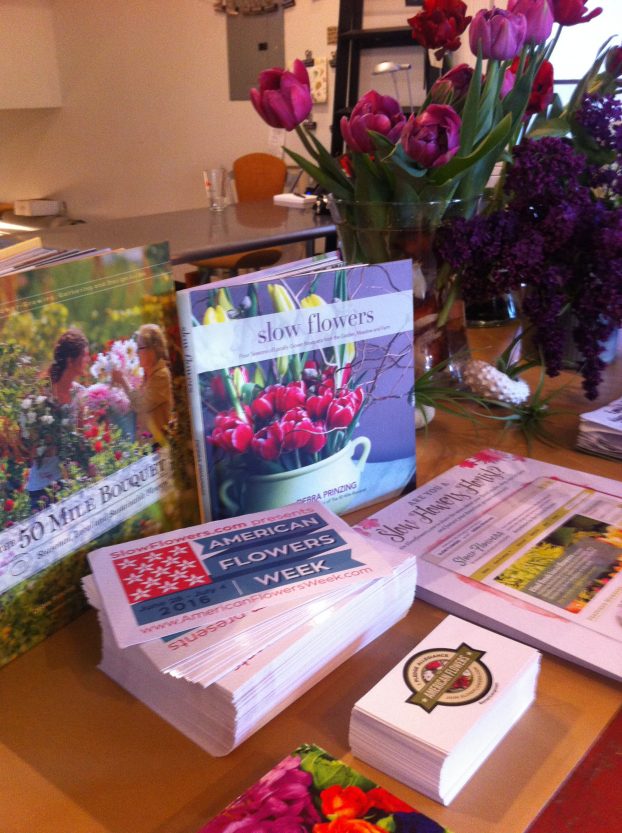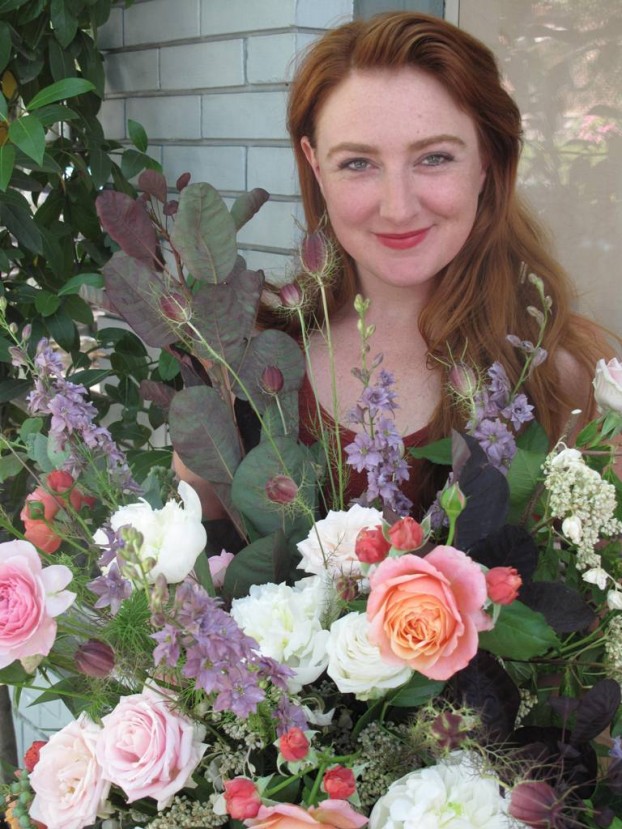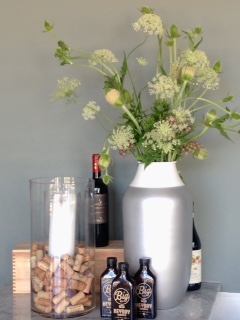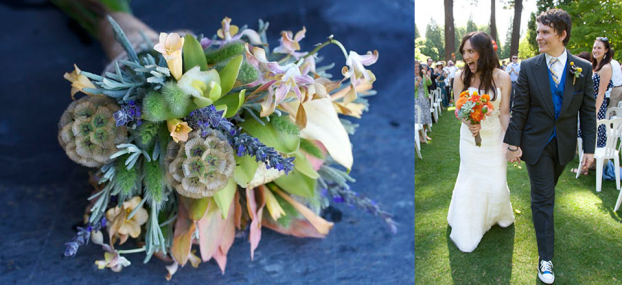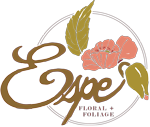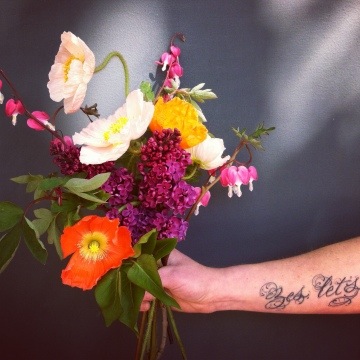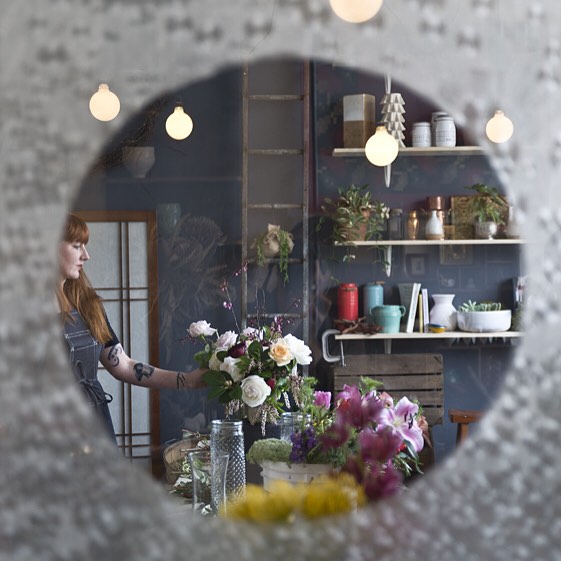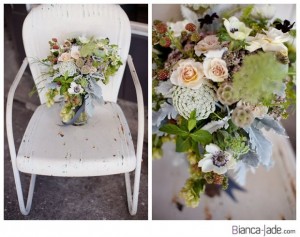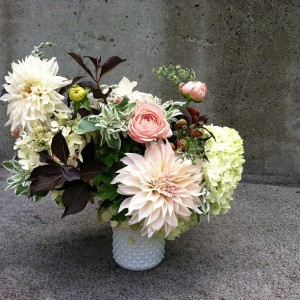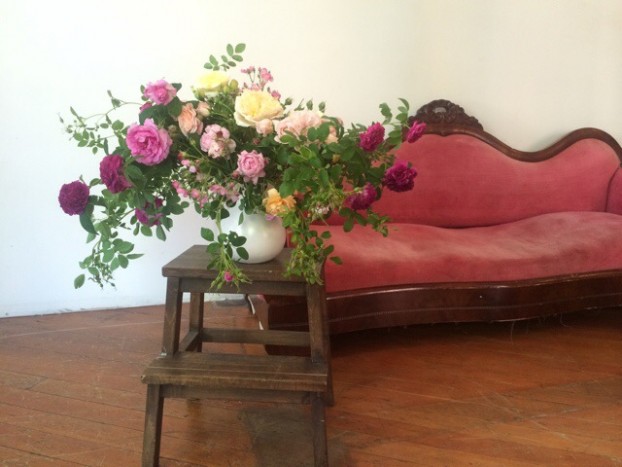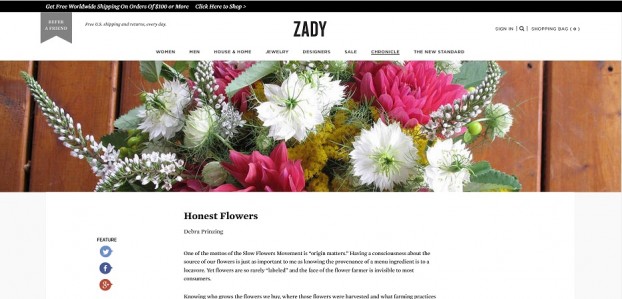Podcast: Play in new window | Download
Subscribe: Apple Podcasts | Podcast Index | RSS | More
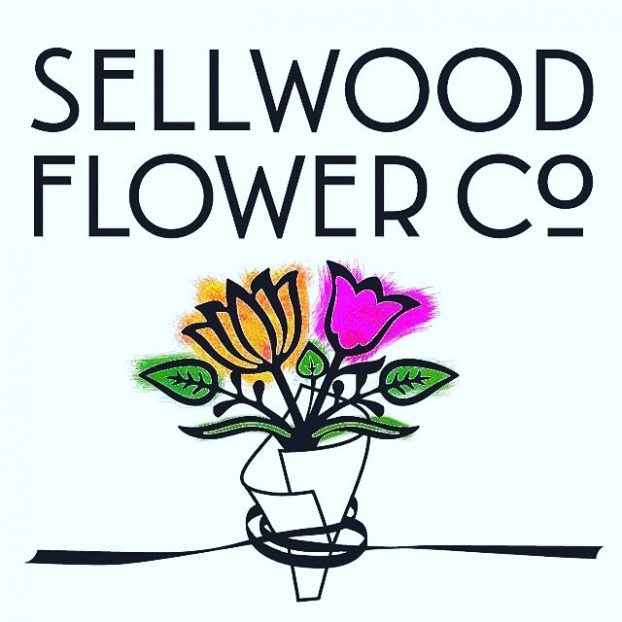 When I was a teenager, I dreamed of someday owning a fabric shop. For many of you, I’m guessing that dream was to own a flower shop. How many of you ad a similar dream and realized it? Being able to work around flowers — whether you grow them, design with them, or do both, and ultimately selling them to satisfied customers — is clearly one reason you’re in this business, right?
When I was a teenager, I dreamed of someday owning a fabric shop. For many of you, I’m guessing that dream was to own a flower shop. How many of you ad a similar dream and realized it? Being able to work around flowers — whether you grow them, design with them, or do both, and ultimately selling them to satisfied customers — is clearly one reason you’re in this business, right?

Love this jumbo red-white-and-blue array, and if you look closely, LauraLee is peering out from behind it!
Today’s guest is definitely one of those flower fanatics whose also dreamt of opening a flower shop You’ll enjoy the story and perhaps it will inspire you! Please meet LauraLee Symes, owner of the Sellwood Flower Company in Portland, Oregon, a Slowflowers.com member.
Specializing in flowers, gifts and plants, Sellwood Flower Co. is an inviting place, located in a century-old Victorian house on Antiques Row, in the Southeast Portland neighborhood also called Sellwood.
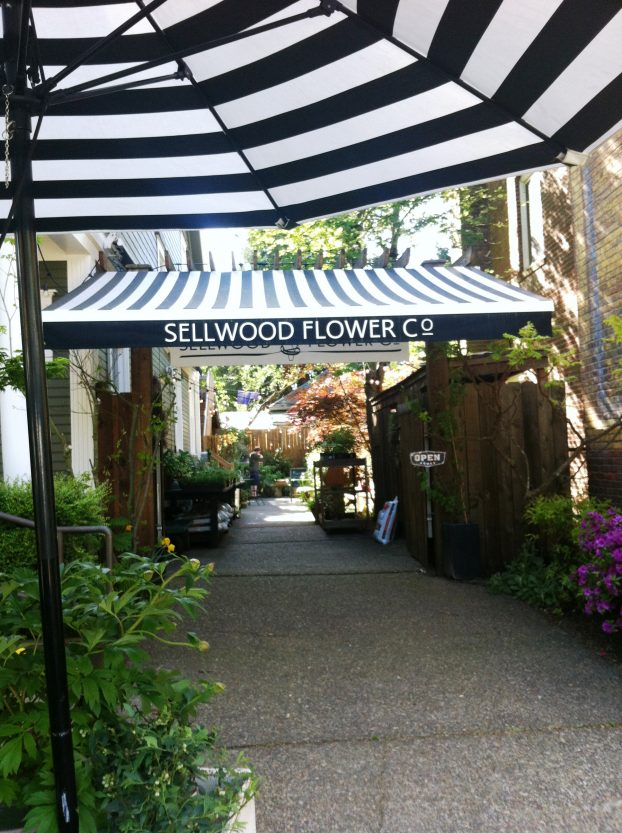
Love the black-and-white awning stripes, which are part of Sellwood Flower Co.’s visual brand evoking a Parisian flower shop.
There, you’ll find LauraLee and her team tending their blooms in the garden just outdoors from their neighborhood shop filled for fresh, local flowers and plants, European and garden style floral design, and unique gifts from around the world.
LauraLee says she has been messing around with flowers since she was a little girl growing up on the family farm in Scholls, Oregon. Her other passion, happiness – or, more specifically, the study of what makes people happy – led her to pursue a bachelors degree in psychology, a masters in organizational development, and a career as a counselor and consultant to both individuals and business organizations.
Her most recent venture, the Sellwood Flower Co., is a marriage of her two passions, a Parisian-styled flower shop specializing in creative arrangements of fresh, local blooms and whimsical gifts curated to inspire joy and delight in her customers.
“I spend a whole lot of time thinking about, looking at, and dreaming of more creative ways to use the crazy abundance of plant life that surrounds us here in the Northwest. I look at a handful of flowers and I see a handful of happiness!”
In addition to being a busy entrepreneur and business owner, LauraLee hosts frequent floral design workshops and writes a blog on ideas and trends in the flower industry. She and her husband Bill live and work in the historic Sellwood neighborhood in southeast Portland, Oregon.
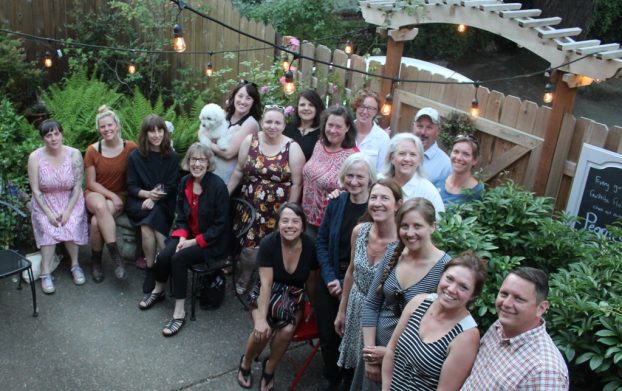
What a wonderful evening — meeting and sharing our mutual passion at the Slow Flowers Meetup @Sellwood Flower Co.
I was in Portland last month for a series of events, including a Slowflowers.com meetup at Sellwood Flower Co., which I co-hosted with LauraLee.
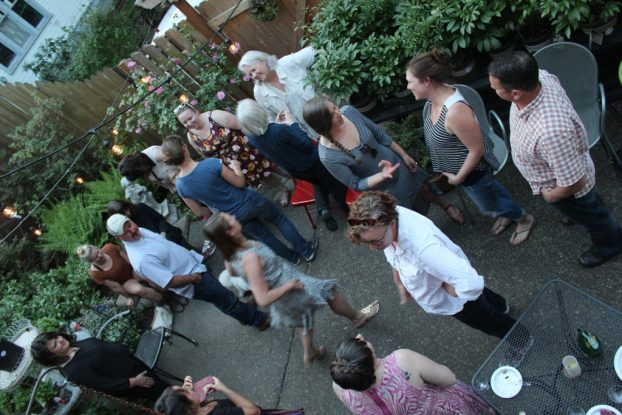 We enjoyed meeting and reuniting with such a great group of flower friends — flower farmers, studio florists, retail shop owners — all who care about sourcing local and domestic botanicals for their businesses. I was so encouraged by the turnout and I especially thank LauraLee for sharing her beautiful store and nursery grounds for our gathering.
We enjoyed meeting and reuniting with such a great group of flower friends — flower farmers, studio florists, retail shop owners — all who care about sourcing local and domestic botanicals for their businesses. I was so encouraged by the turnout and I especially thank LauraLee for sharing her beautiful store and nursery grounds for our gathering.
The Slow Flowers Podcast has been downloaded more than 98,000 times by listeners like you. THANK YOU to each one of you for downloading, listening, commenting and sharing. It means so much.
Next week, you’re invited to join me in putting more American grown flowers on the table, one vase at a time. And If you like what you hear, please consider logging onto Itunes and posting a listener review.
The content and opinions expressed here are either mine alone or those of my guests alone, independent of any podcast sponsor or other person, company or organization.
The Slow Flowers Podcast is engineered and edited by Andrew and Hannah Brenlan. Learn more about their work at shellandtree.com.









